Ready to make a difference in sustainable electronics?
Reach out to us now to discuss partnership opportunities and explore our cutting-edge approaches.
Driving sustainability in the Internet of Things (IoT) era

Sustainable electronics is a crucial concept encompassing the environmentally responsible design, manufacture, use, and disposal of electronic devices. With the massive deployment of the IoT (remote sensing devices), there are three key sustainability aspects to consider:
At CSEM, our primary goal is to reduce the impact of small, yet massively produced electronics through innovative design architectures, materials, and processes. We strive to achieve a drastic reduction in the environmental footprint of electric devices. By incorporating sustainable practices, we aim to pave the way for a more environmentally conscious IoT era.
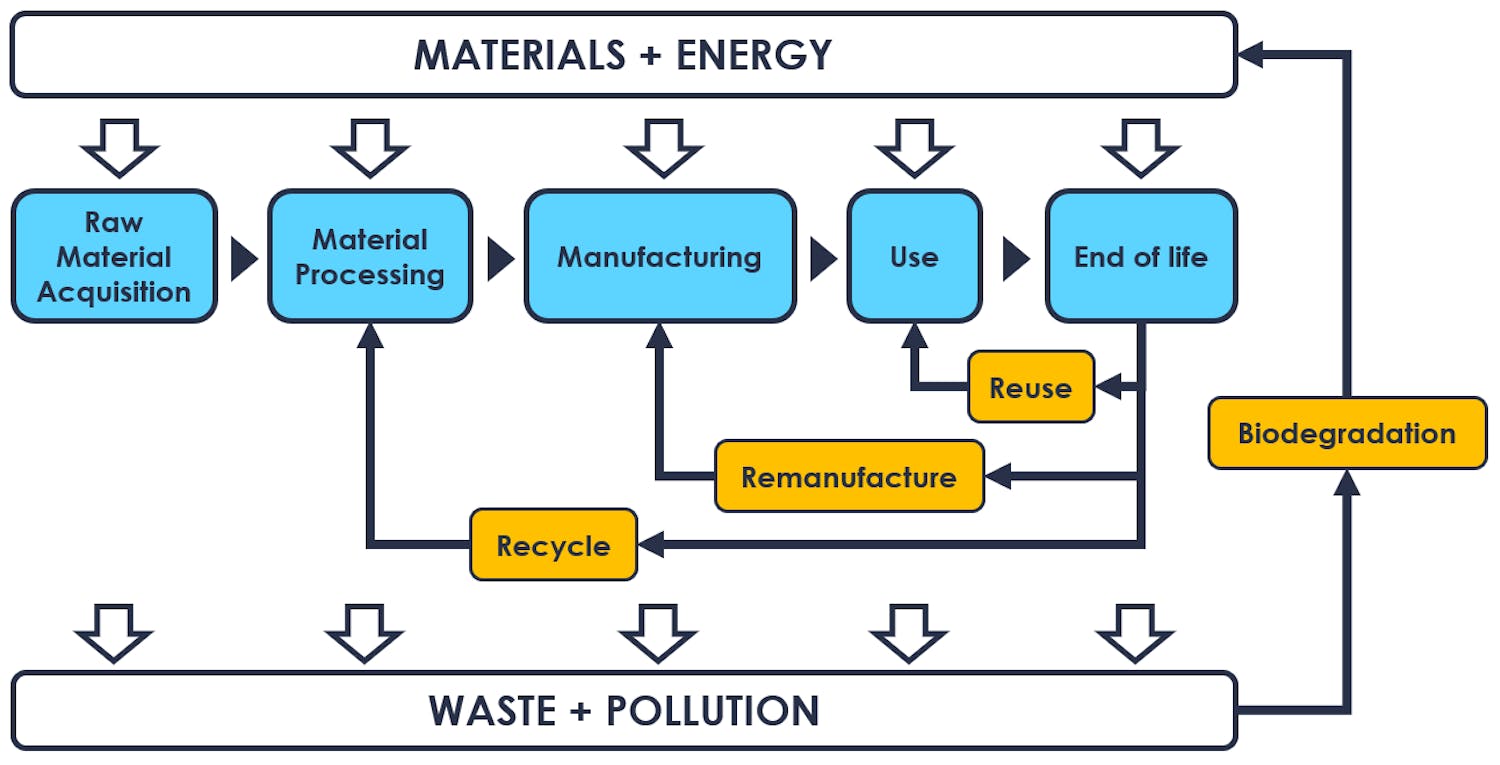
A sustainable future for electronic manufacturing starts by thoroughly evaluating a product's entire life cycle through Life Cycle Analysis (LCA). By exploring feasible transferability to industry through Technology Readiness Level (TRL) assessments, we strive to build a more responsible electronic future.
We collaborate closely with industrial companies to study the environmental impacts of small electronic products and develop LCA models that assess potential alternatives. Our key focus is to create portfolios of solutions, encompassing materials, processes, and design architectures which can be easily adopted by our partners.
To meet the urgent need for sustainable solutions that minimize waste and maximize resource efficiency, we advocate the principles of circular electronics, nine of which are fundamental: Rethink, Redesign, Reduce, Reuse, Recycle, Repair, Remanufacture, Refurbish, and Recover. These principles guide us in transforming the way electronics are designed, produced, and consumed, promoting sustainability at every stage of their lifecycle.
In the pursuit of design sustainability, we delve into the life span and fate of small electronic devices. To address environmental concerns, we adopt three key strategies:
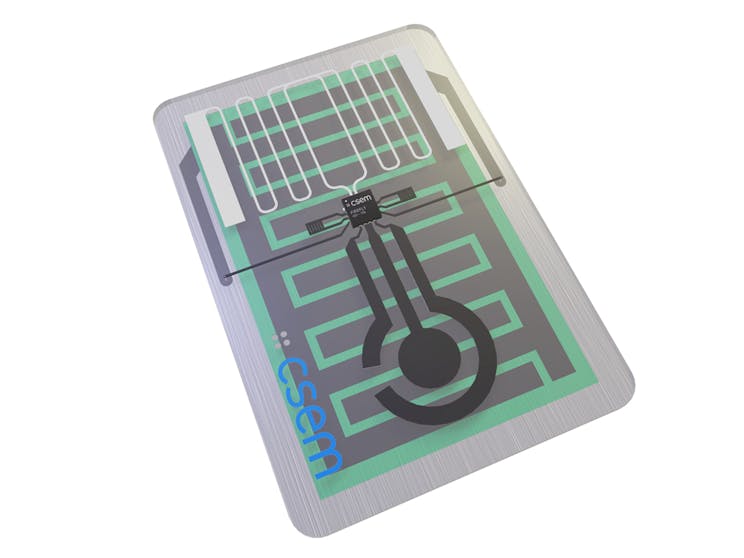
Disposable biomarker detector
For short-lived products, we prioritize materials that enable bio-sourcing, clean incineration, or biodegradability. By carefully selecting eco-friendly materials we ensure responsible disposal practices.
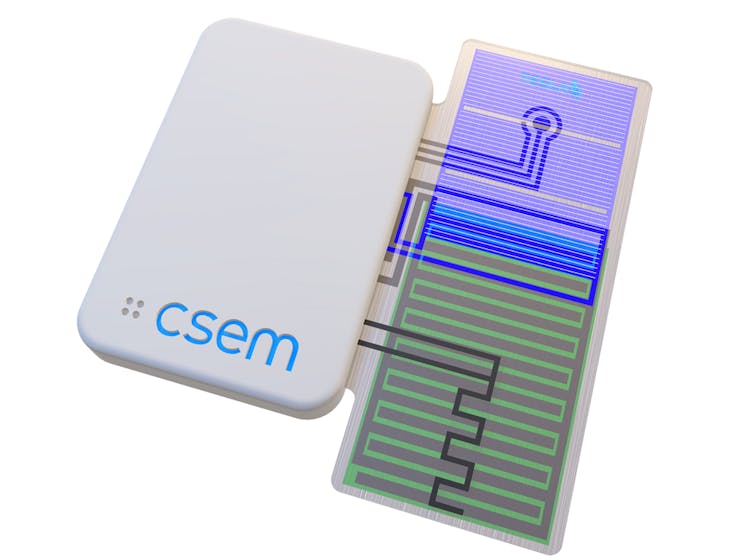
Smart agriculture sensor for leaf monitoring
When non-sustainable materials are unavoidable, we minimize their usage through smart miniaturization. Additionally, we concentrate these materials in easily separable sections, simplifying the reusing or recycling of components.
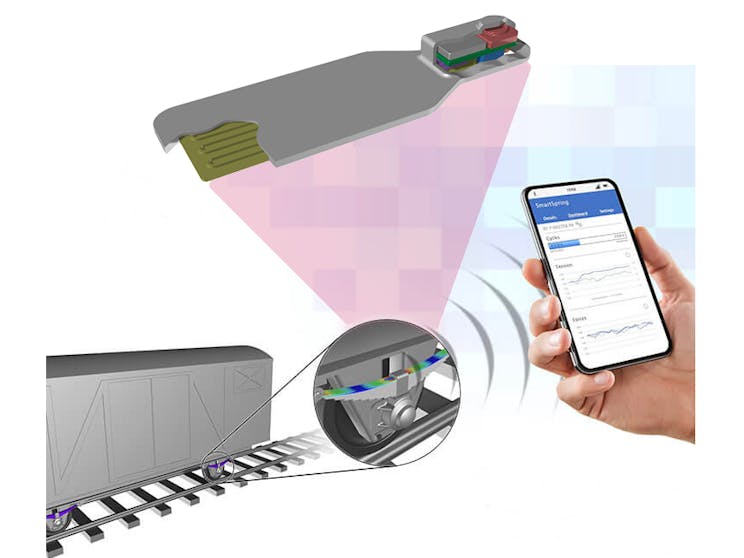
Long-term heavy-duty springs monitoring sensor
Our focus has shifted to developing products with extended operational lifespans, which serves as a counterbalance to their environmental footprint. To achieve this, we tackle challenges in materials, processes, wireless power transfer, battery recycling, and design sciences, while also recognizing the social implications of electronics products on society’s economy, regulations, and public perception.
Transforming the mature and optimized electronic manufacturing industry while maintaining cost-effectiveness and competitiveness presents significant challenges. So far, only incremental changes have been considered and implemented due to the competitive environment. Although regulations like the Restriction of Hazardous Substances (RoHS) have driven some changes, radical transformations demand practical alternatives identified, evaluated, and implemented in an industrial context.
Sustainability in electronics is a complex problem with no straightforward or unique solution. Product specifics and their applications drive requirements in diverging directions. To address this complexity, technology innovations centers like CSEM, and research and technology organizations (RTOs) like VTT Technical Research Centre of Finland, Tyndall National Institute, the French Alternative Energies and Atomic Energy Commission (CEA), and the Fraunhofer Group for Microelectronics propose tailor-made solutions from their portfolios to industries seeking manufacturing transitions. Developing RTOs and academic networks play a vital role in broadening the set of solutions and assembling the right ones.
References
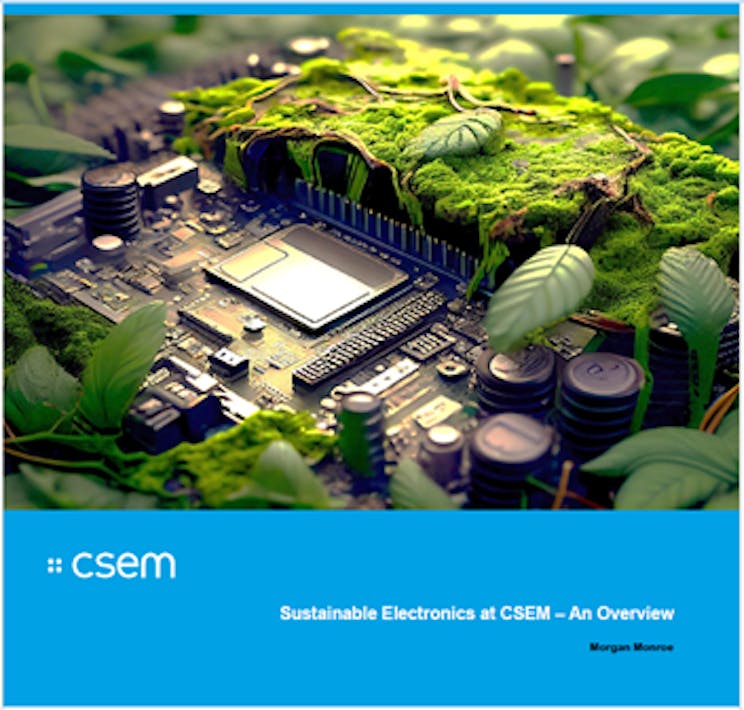
This White Paper on Sustainable Electronics gives an overview of the current state of sustainable electronics and provides design and development direction to make the field even greener. It is not meant to be a comprehensive discussion on the topic, but rather an introductory document providing references and terminology to guide further research.
In particular, this document will focus on the development of smaller scale electronics for use in applications such as wearables, IoT, and similar, as opposed to larger scale sustainability efforts such as renewable energy infrastructures. The body of literature for these larger systems is already well established and extensive. This paper discusses the current state of relevant technologies while acknowledging their limitations and the drawbacks of a transition to more sustainable options based on the current body of knowledge.
In addition to establishing basic principles of sustainable electronics, the document aims to provide a perspective on the roadmap of CSEM’s efforts towards greener electronics, highlighting current and planned projects targeting this goal. Emphasis is placed on the importance of product use case and lifetime with regards to sustainable design and how functional life impacts the decisions made during materials selection and initial development.
The author is Morgan Monroe, Doctor of Microtechnology and Engineering specializing in printed and sustainable electronics. She is currently working as PostDoc for CSEM.
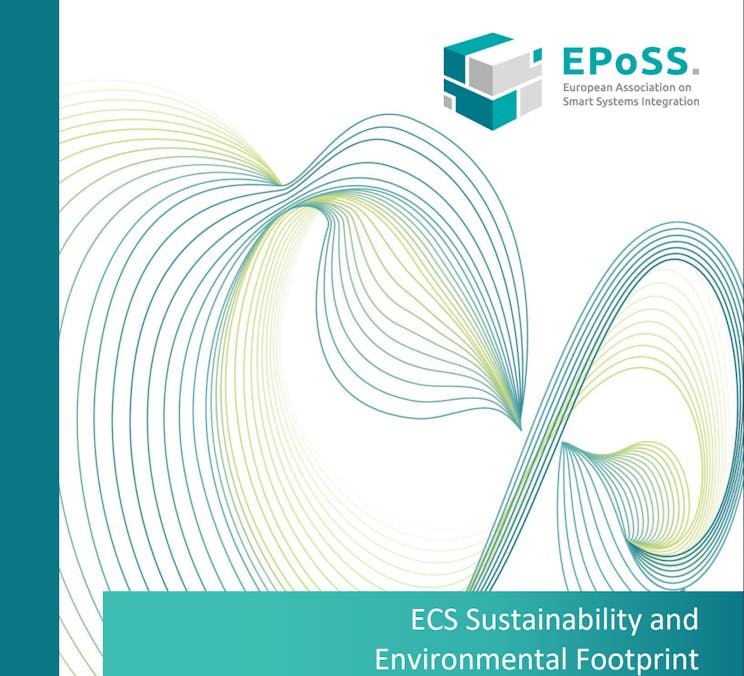
Experts from the Smart Systems Integration community of the EPoSS* (European Platform on Smart Systems Integration) association have published their White Paper on Green ECS: "ECS Sustainability and Environmental Footprint" in November 2023.
How to reduce the environmental footprint of ECS (Electronic Components and Systems)?
In the White Paper, a wide range of experts from the Smart Systems Integration community of the EPoSS associations provided their insights on the state-of-the-art technologies and future recommendations in the ECS domain. They did so in the context of EU legislation, international standards and in support of the European Green Deal.
Erika Györvary, Lead of EU Affairs at CSEM, leads the EPoSS Working Group Green ECS and co-edited the White Paper together with Matthias Straub, Climate-Coach with Mittelstand Digital Zentrum Klima.Neutral.Digital. Philippe Dallemagne, Senior Expert & IoT Coordination at CSEM, was also member of this joint working group of experts.
*EPoSS is the European Association leading the development and integration of intelligent and green Smart Systems technologies and solutions for a sustainable society.
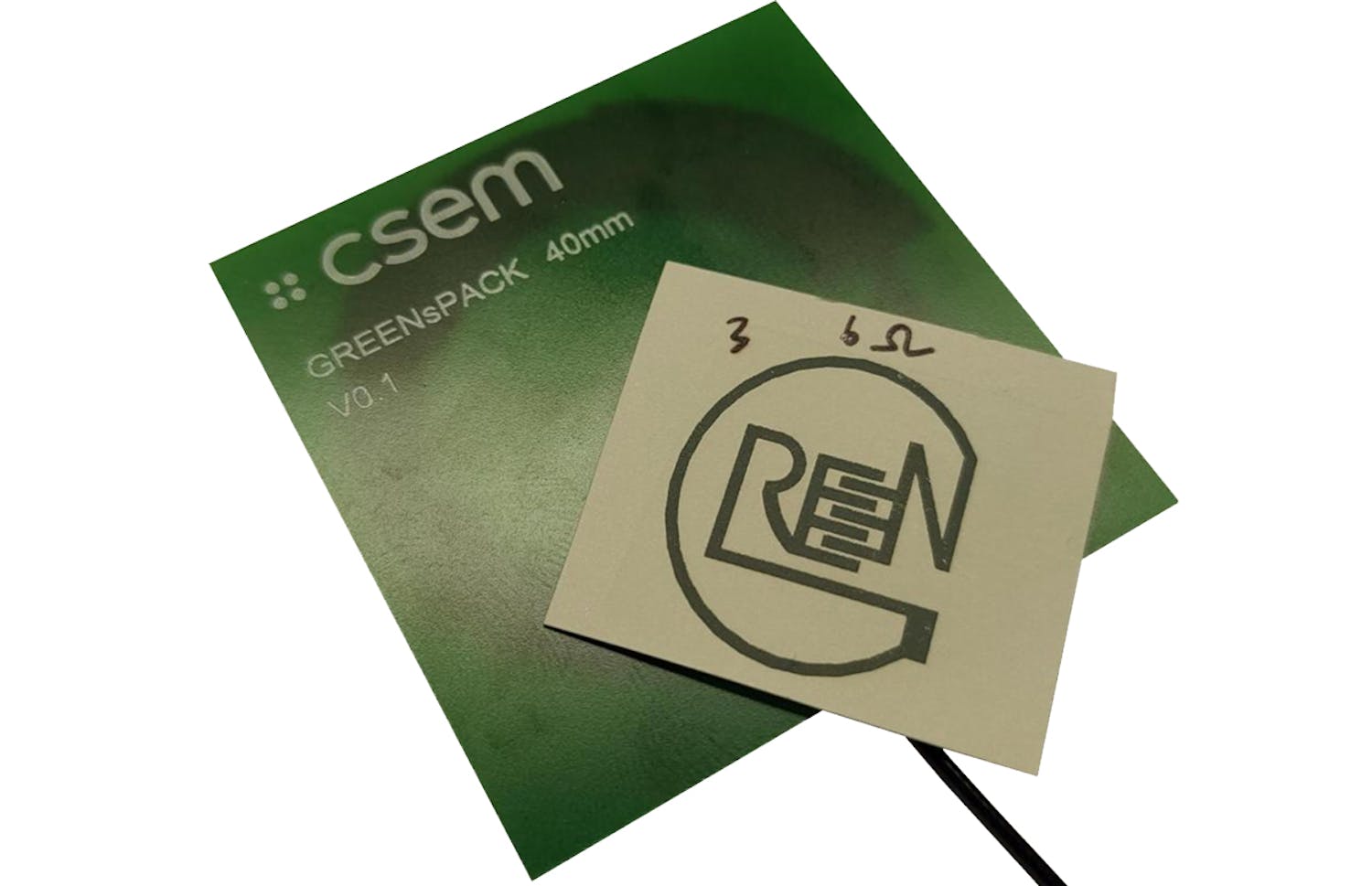
Promoting sustainability and reducing electronic waste (e-waste) in the electronics industry are essential for the future of our ecosystem. CSEM remains committed to exploring sustainable electronics solutions and providing alternatives to interested industrial partners. We achieve this by partnering and co-innovating with academic institutions, RTOs, and industry participants in Swiss and European projects such as, TESLA Research Project (funded by CHIST-ERA), SUSTRONICS (KDT), EECONE (KDT), GREENsPACK (BRIDGE), and more. By working together, we strive to a create a more sustainable electronic landscape.
Reach out to us now to discuss partnership opportunities and explore our cutting-edge approaches.